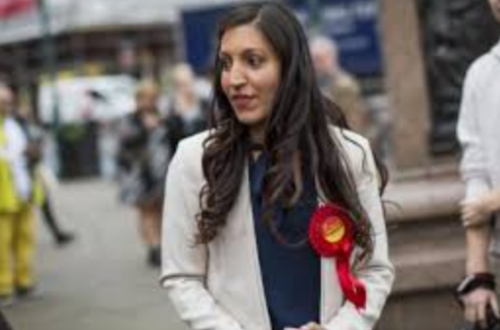As chair of the All-Party Parliamentary Group Against Antisemitism, I like to think I can see some progress in getting things done. Our inquiry into antisemitism raised the profile of the fight against this ancient hatred. Our work in Parliament and outside with stakeholder groups like the Community Security Trust (CST) has led to tangible results. The police now detail antisemitic hate crimes in a way they did not before, the Crown Prosecution Service has reviewed its procedures and is better at understanding and prosecuting hate crime than ever before, and Jewish schools in the state sector now have adequate funding from Government for their security needs.
Recent weeks have served as a stark reminder of the remaining challenges.
When John Galliano embarked upon his racist rant, condemnation was widespread and rightly so. When Charlie Sheen and allegedly Julian Assange exposed their views on Jews, they too were castigated. It should follow that when Paul Flynn MP questioned the propriety of a British Jew serving as ambassador to Israel he should have faced unequivocal condemnation – but it was not so, perhaps because in his words, he is a ‘supporter of Israel’.
Inappropriate language and behaviour is not restricted to the Labour party of course– soon after, Zac Goldsmith MP used a reference to Auschwitz to criticise the media and Aidan Burley MP partied with friends dressing and buffooning as Nazis.
The All-Party Inquiry into Anti-Semitism was important not only for its recommendations and outcomes but because it engendered a generation of Parliamentary spokespeople eloquent in their opposition to antisemitsm. It secured a culture in Parliament whereby intra-party conversations were had and action taken in the event that an MP stepped out of line. Perhaps now is the time to re-establish that informal protocol and to widen its reach.
For me there are two issues.
First is inappropriate language or discourse. The All-Party Inquiry raised this matter some five years ago and it has been the most difficult to get traction on. Be it online, on campus or in political debate, the line between legitimate and antisemitic discourse is crossed too often. It tends to be that classic antisemitic conspiracy theories are given modern ‘Zionist’ clothing by naïve or careless anti-Israel campaigners. These narratives are adopted by a section of the Left, seep into media discourse and end up repeated as fact in Parliament. This tends to cast the successful Jew as the conspirator, benefiting from secret cabals; the powerful Jew as the aggressor, working as part of a Zionist plot for war and world domination; and the proud and confident Jew as dislikeable and defensive, seeing antisemitism in all that others say and do.
People will have read on this very blog about Paul Flynn’s comments about British ambassador Matthew Gould who is according to Flynn “unique in some ways in the role he is performing” and should be replaced by “someone with roots in the UK”. The idea that people should be judged fit for office by their race or religion is disgusting and racist. That Flynn tried to laugh his comments off by referring to his Jewish friends and love for Israel missed the point entirely. This is not the first time this idea has been aired though. In 2009 when Sir Oliver Miles, Her Majesty’s former Ambassador to Libya, questioned the propriety of having Sir Lawrence Freedman and Sir Martin Gilbert sit on the Iraq war inquiry panel because of their Jewish heritage and ‘Zionism’, he questioned the loyalty of British Jews and their suitability for public service. This accusation of dual loyalty sits well amongst antisemitic conspiracy theories, but of course is more complicated to explain than a base curse.
The reaction we must start at home is with the British intellectuals who get nervous when I label them, accurately, not as the anti-Zionists they wish to be known as, but as the racists that they have become; the scholars, who answer every argument with a but, when there are no ifs, no buts in the fight against antisemitism. In Parliament, we must set the standard for measured and appropriate discourse. To change the direction of traffic we will need to explain to people why their language is inappropriate and where it finds its roots.
The second issue is about behaviour and reaction. Aidan Burley turned up to a stag-do in France where a friend was wearing an SS uniform with a swastika on the arm. That his reaction was not to turn around and go home is shameful. So too was the behaviour of the Oxford Conservative Students Assocation in singing Nazi-themed songs. In both cases inquiries have been launched, but with no timetable, means of publicising the findings or immediate sanctions imposed. In my view a transparent disciplinary system needs to be in place for the political parties – particularly at election time for candidates. This would have encompassed, in my view, the immediate dismissal of Aidan Burley from his government post and that announcement by Paul Flynn that he is to stand down.
On both these matters, our All-Party Group will be acting. We are soon to embark on a series of seminars for MPs with the Pears Institute for the Study of Antisemitism at Birkbeck, University of London. The focus will be understanding antisemitic discourse. We will also be working too with the CST so that MPs can get a better feel for the kind of language seeping into societal discourse in the UK. Of course, for those wanting to fine tune their understanding of these matters, the CST blog and excellent discourse report are a good place to start. As for the All-Party Group, we will be announcing a major plan to address behaviour of candidates at elections and appropriate training for candidates. This I hope will cultivate more appropriate behaviour by future parliamentarians faced with a situation such as that in which Aidan Burley found himself.
In addition, we will continue to press the Government to do more on combating internet hate and to work with Universities UK towards the implementation of good practice in dealing with hate speech on campuses. We will continue to monitor antisemitism in the Euro2012 football tournament and get a better picture of what level of antisemitism exists in the British game
Briefings on the details of our attempts and successes are available on our website and via our twitter username: @APPGAA; I would encourage Harry’s Place readers to take a look. You will be heartened by the many Parliamentarians involved in our work– those who like me refuse to stay silent, who are not interested in being someone but in doing something.
John Mann is the Labour MP for Bassetlaw and chair of the All-Party Parliamentary Group Against Antisemitism


